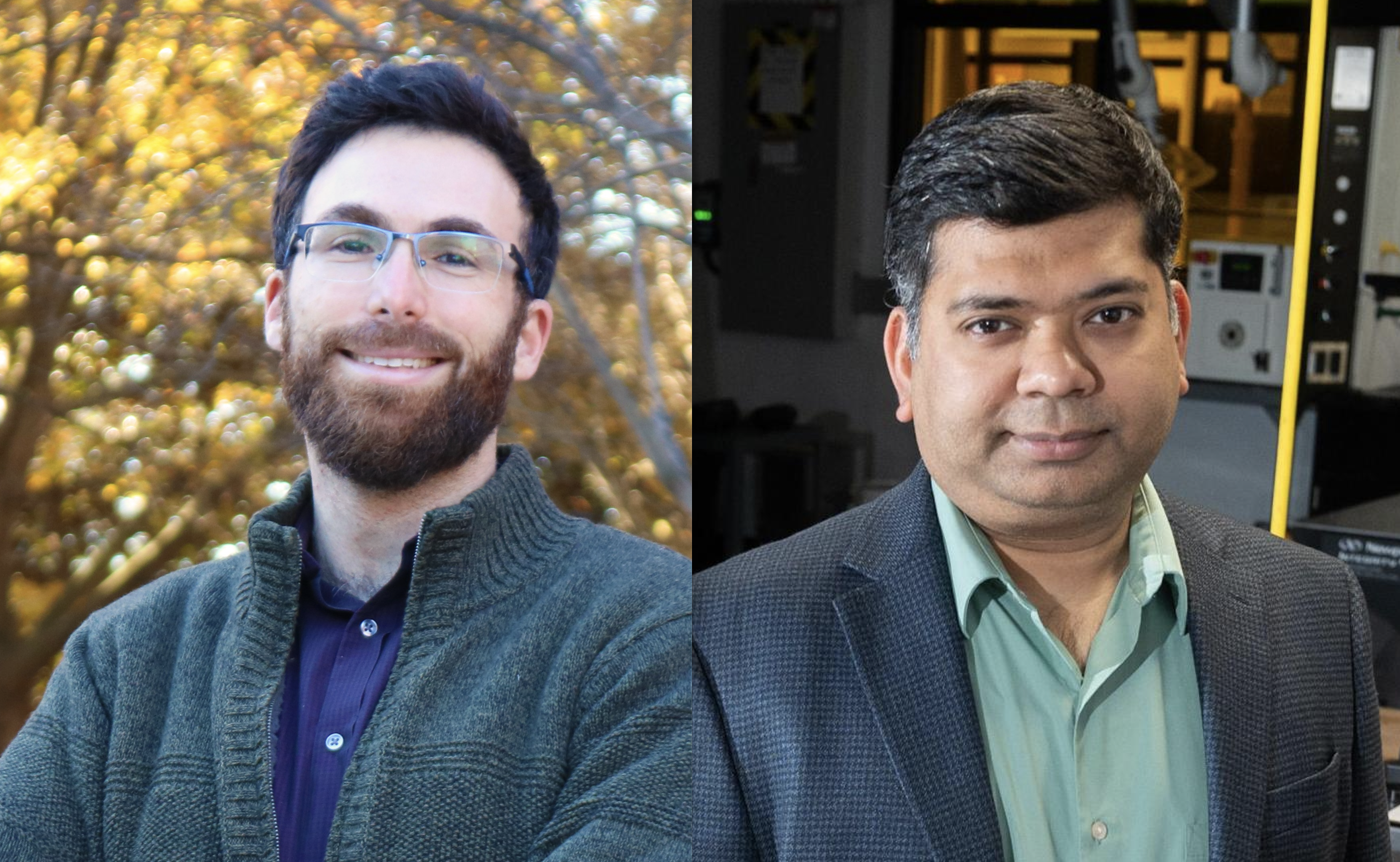Two Georgia Tech assistant professors are among the recipients of this year’s Early Career Research Program (ECRP) grants from the U.S. Department of Energy (DOE). Itamar Kimchi, in the School of Physics, and Sourabh Saha, in the George W. Woodruff School of Mechanical Engineering, have each been awarded $875,000 over five years to pursue research on the role of entanglement in quantum materials and manufacturing cost-effective fuel capsules for fusion energy, respectively.
The Department of Energy has funded these early career awards since 2010, and this year distributed $138 million to 91 scientists nationwide. These awards are critical to DOE’s long-standing efforts to develop the next generation of STEM leaders and solidify America’s role as the driver of science and innovation.
“Investing in cutting-edge research and science is a cornerstone of DOE's mission and essential to maintaining America’s role as a global innovation leader,” said U.S. Secretary of Energy Jennifer M. Granholm.
Itamar Kimchi
Kimchi’s research in quantum theory explores the role of entanglement in strongly correlated quantum materials, which have potential applications in quantum computers, sensors, and solid-state devices. His work addresses the challenges posed by defects and quenched disorder in these materials.
Kimchi’s project aims to construct theoretical models to describe novel behaviors, particularly in quantum spin liquid (QSL) phases of magnetic insulators. The research seeks to demonstrate the transformation of QSLs from weak disorder, predict defect effects in QSLs, and collaborate with experimental labs to address the dichotomy between global and local experimental probes in materials with local defects.
The ECRP award will support Kimchi’s efforts to develop theoretical frameworks that guide new concepts and experimental probes — and to uncover how crystallographic defects can identify, generate, and control emergent quantum behavior, contributing to next-generation technologies for energy applications.
“Quantum sciences and technologies are becoming increasingly important for U.S. interests, as seen in the National Quantum Initiative, the CHIPS and Science Act, and other efforts,” said Kimchi. “Together with my research group, we are delighted to be supported by the Department of Energy and to join its extraordinary network of researchers, which enables us to pursue these challenges in understanding and using quantum materials.”
Sourabh Saha
Saha’s research focuses on generating novel, advanced manufacturing capabilities that will massively reduce the cost of fabricating fuel capsules for inertial fusion energy. Nuclear fusion is the mechanism that powers the sun and generates the sunlight received on Earth. Fusion can be a clean, safe, abundant, and reliable source of electricity, but controlling it on Earth is a major challenge.
Inertial fusion is one way to achieve and control fusion. This requires holding the nuclear fuel within pea-sized capsules, called targets, that are manufactured to extreme precision. For fusion to be a cost-effective source of electricity, the expense of producing these fuel capsules must be reduced from tens of thousands of dollars to less than a dollar. This is where Saha’s work lies: in enabling new ways of making the fuel capsules, cost-effectively and precisely.
The ECRP award will allow Saha to focus on advancing the scientific knowledge base for scalable manufacturing of fusion targets. Generally, manufacturing scale-up is perceived as a late-stage engineering activity that can be postponed until a technology’s scientific underpinnings have been determined. But this perception has also often led to the underfunding of manufacturing science research.
Saha believes that to solve many of engineering’s current grand challenges, the science of manufacturing scale-up should be considered early on — and in concert with researching other aspects of a technology.
“The DOE award allows our group to do precisely this kind of research in the area of fusion energy. I am humbled to be able to work on one of the most challenging but worthwhile problems of our time,” Saha said.
Early Career Program awardees in this round of funding were required to be an untenured assistant or associate professor on the tenure track at a U.S. academic institution, or a full-time employee at a DOE national laboratory or Office of Science user facility who received their Ph.D. within the past 12 years. A list of the 91 recipients, their institutions, and the titles of their research projects is available on the ECRP website.
Previous Recipients of DOE Early Career Grants
Wenjing Lao, associate professor, School of Mathematics
Ryan Lively, Thomas C. DeLoach Professor, School of Chemical & Biomolecular Engineering
Devesh Ranjan, Eugene C. Gwaltney Jr. School Chair and professor, Woodruff School of Mechanical Engineering
For More Information Contact
Shelley Wunder-Smith
Director of Research Communications



